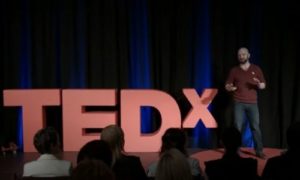Over the past week, I’ve been deep in thought about the core marketing approach of the Dojo. And as I’ve pondered this I’ve been struck by a question:
Are we serving coaches that want to be great—
as in masterful at what they do?
OR
Are we serving coaches that want to be “successful”—
as in making a lot of money?
But it wasn’t until this morning that I realized this is a false choice.
You see, it IS possible to be successful as a coach and not be very good. Marketing, sales, and niche celebrity all work even if you aren’t actually a great coach. You can get by being just okay if you’ve got these other pieces nailed down. That’s obvious to anyone who looks at our industry.
But what’s less obvious is that you can’t actually be a great coach and be broke. And yet this is an illusion many of us hold true.
We think that being a great coach is simply about knowing how to serve people powerfully and that this service is somehow separate from making money.
We think this because our culture draws this distinction over and over again.
We think Mastery and Money-stry are different.
But for coaching, at least, it isn’t. While success as a coach isn’t correlated with mastery, true mastery as a coach is 100% correlated with success.
For one simple reason:
If you know how to serve people powerfully and shift them in the moment, but you don’t know how to help them create commitment—deep, powerful, dangerous, expensive commitment—you are not a Master.
You are a great coach with a massive blind spot. One likely created from guilt, fear, doubt, uncertainty, false righteousness, and a lack of confidence.
To become a Master coach you must master the Architecture and Archery of Commitment.
This may not be a popular idea. This may give you the illusion that you suck at coaching if you’re broke. But neither change this simple truth that I have seen again and again.
AND…
If you desire to be a Master coach, a Samurai coach, a coach of honor and impact, you must realize that the ability to create powerful commitment—commitment with zeros behind it—is not separate from coaching mastery itself.

